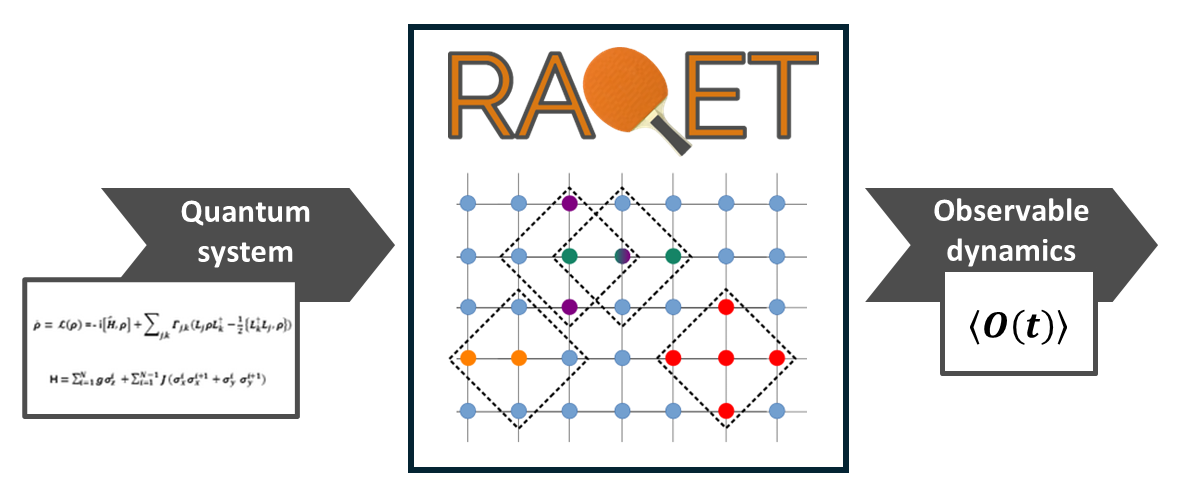Introduction
Raqet is a software package developed by HQS Quantum Simulations for the purpose of simulating the dynamics of quantum systems that can be approximated by neglecting certain correlations, in particular, systems subject to noise.

It performs these simulations in an efficient manner by taking advantage of the fact that in such (noisy) systems, the spread of correlations is limited (by decoherence). This can be used to reduce the level of complexity required to describe the physics of such a system, resulting in sub-exponential scaling of the equations of motion.
Applications
Raqet is used to study the time evolution of expectation values of local observables, which is done by setting up the corresponding equations of motion. In general, such systems of differential equations contain an exponential amount of variables in the form of further operator expectation values.
In the case of spin-1/2 systems, one often uses the basis of Pauli operators of the spin sites, thus finding expectation values of the form . Typical schemes for reducing the exponential complexity is truncating the equations of motion: For example, one might neglect higher-weight operators, i.e., operators with support on too many sites , by setting them to zero. Another possibility to omit higher-weight operators is factorization, including the popular mean-field approximation . Such approaches effectively discard specific correlations between these sites.
Raqet uses sophisticated reasoning which expectation values to neglect or factor (using higher order cumulant expansions beyond the mean-field approach). Based on a notion of distance between the sites provided by the user, and motivated by the fact that correlations, specifically in noisy systems, only spread finite distances, Raqet reduces the complexity of the computation using a cutoff radius for the "size" of operators, where this radius controls the level of approximation of the method.
Hence, the software provides the option to simulate quantum systems to a desired accuracy efficiently by setting up the equations of motion ignoring irrelevant degrees of freedom, i.e., correlations reaching beyond a distance they should not be able to spread to.
Getting started
The HQS Raqet package can be installed via HQStage with the following command
hqstage install raqet-py
Examples of using Raqet to obtain the factorized dynamics of various physical systems can be found in the associated Jupyter Notebooks, which can be downloaded with
hqstage download-examples -m raqet-py
Features
-
Input Hamiltonian System: Raqet takes as input a Hamiltonian system affected by noise.
-
Truncated Equations of Motion: It returns a truncated set of equations of motion that are simpler than the equations of motion required for perfect accuracy.
-
Accounting for Noise: The truncated equations are derived by accounting for the limitations imposed by noise on the spread of correlations in the system.
-
Efficient Dynamics Solving: The simplicity of the truncated equations allows for solving the dynamics of the system in polynomial time, rather than exponential time.
The Python API documentation can be found here.